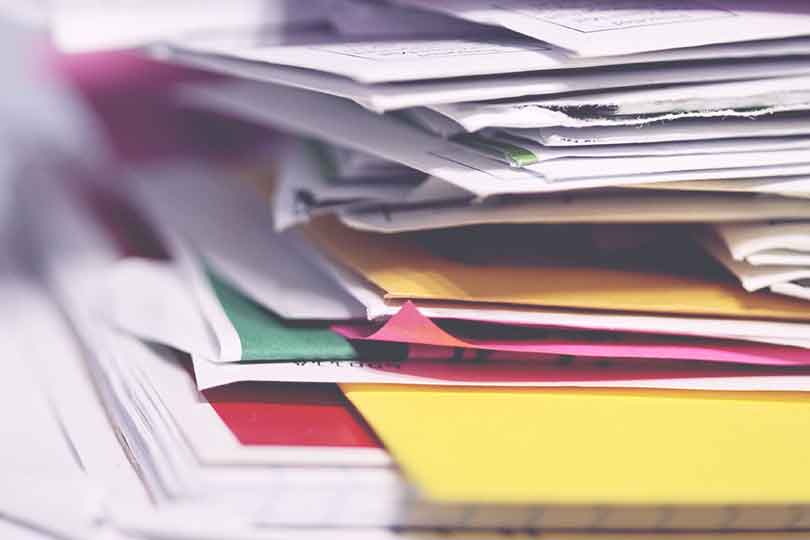Financial Records have a way of piling up on you. Stacks of unopened bills, financial statements, insurance policies, investment papers, receipts, pay stubs, tax returns, et al.–a multitude of documents you don’t know what to do with or how long to keep. Sound familiar? Quite likely, because most of us suffer this obvious consequence of not organizing financial records. We all could use some cleaning up and regular maintenance to keep financial documents in good shape. And the sooner the better, because mismanaging financial records can lead to significant consequences. So here are some simple tips to help you organize your financial paperwork.
5 Tips to Organize Your Financial Records
- Gather them all. Collect all your bills, paperwork, and unopened mail. The fundamental rule is to always look at your documents before you file them. This is important so that you can avoid potential problems that could lead to losing money. So always read your financial statements and take a thorough look at your bills before you decide what to do with them. Get in the habit of having a well thought out, year-end financial strategy to stay on top of things.
- Create an effective filing system. It’s always helpful to file regular bills and financial records by the month or by the account, whichever works for you. However, if you choose to do it by the account, make sure you arrange them in chronological order within each file so that they are easy to retrieve if and when you need them.
- Safeguard your tax papers. Documents required in case of an audit and financial records that support your claims of income have to be kept safe. The IRS can audit you for up to 3 years after you file your returns, and can pursue underreported income for up to 6 years. This means that it’s sensible to keep your tax documentation for a period of 7 years. The best way to organize these records is to file each year’s papers separately. This can make retrieval easy and help avoid confusion.
- Find a safe place to keep the records. While filing cabinets seem to offer the easiest solution, safety deposit boxes can also provide additional safety to important records. Wherever you decide to store your records, make sure you separate them using file folders or tabs. This can make it considerably easy to locate them in the future.
- Back-up computer files. If you’re one for paperless storage of financial records, here’s a thumbs up to you! You’re not only making it easier for yourself, but also for the environment. However, if you have all your financial records organized on your computer, make sure they are secured with an effective firewall and also backed-up somewhere so that you don’t lose them in any situation.
Most of all, remember that just because you’ve come up with a filing system, it isn’t necessary to keep every single document. Before you file a document, ask yourself if you have ever needed it or anticipate needing it in the future. This will help you decide whether to keep or dispose of it. And this, in turn, will make upkeep much easier.

